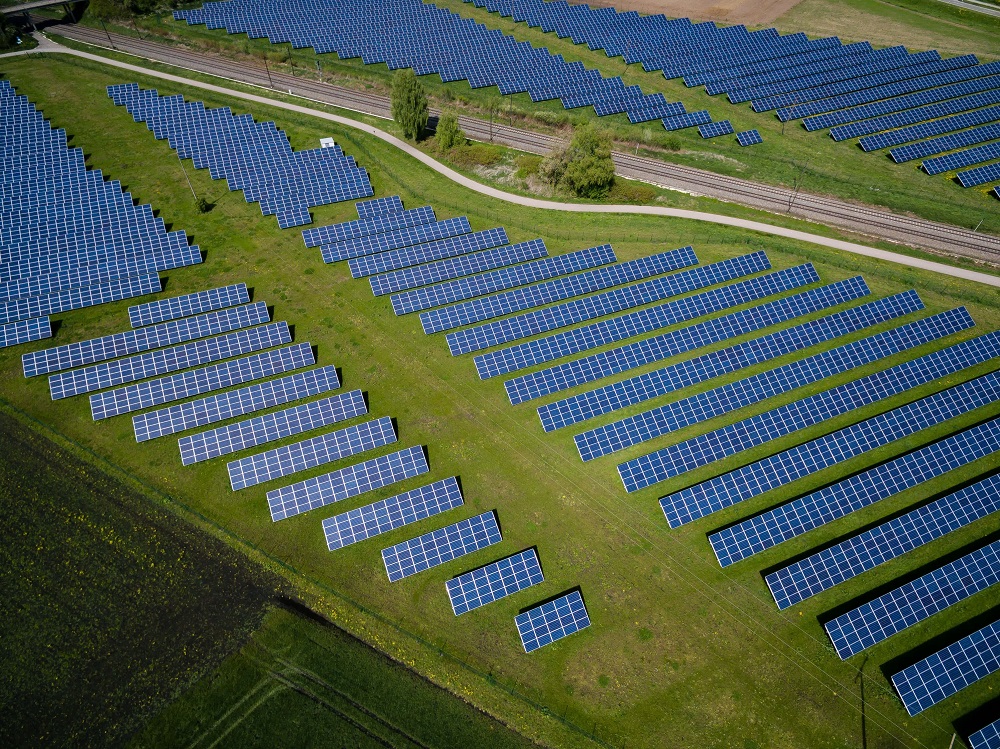It’s time to stop burning our planet and start investing in the abundant renewable energy all around us." - ANTÓNIO GUTERRES, United Nations Secretary-General
The world's energy demands are rapidly increasing, and traditional fossil fuels, such as coal, oil, and natural gas, have been the primary sources of energy for decades. However, the negative environmental impacts of using fossil fuels are becoming increasingly apparent, including greenhouse gas emissions, air pollution, and oil spills.
Renewable energy resources, on the other hand, are clean and sustainable and do not produce any greenhouse gasses during energy production.
Over the last few years, fossil fuels have become a source of growing concern for the environment and climate. One of the most widely used fossil fuels, coal, is responsible for a significant amount of greenhouse gas emissions.
Therefore, it's essential that we shift towards renewable energy sources like solar, wind, hydro, geothermal, and biomass, which are more sustainable and cleaner alternatives to coal.

Benefits of Renewable Energy
There are an infinite number of financial and environmental benefits associated with the use of renewable energy, and we could go on and on about them. As a result, we have written this post to provide you with just 10 of the primary benefits of renewable energy in the hopes that it may assist you in making the transition.
1. Clean, risk-free, and highly effective
One of the benefits of renewable energy is that it is pure, sustainable, non-polluting energy that will never run out as long as the sun is still shining. Another advantage is that it can be used indefinitely. Many countries have less sunny days than Australia, but Perth, in particular, is considered to be the sunniest city in the world due to the fact that it enjoys 147 days of full sunshine and 121 days of partial sunshine annually.
2. Many renewable power methods
It is now possible to generate renewable energy in such a wide variety of methods because of the rapid advancement of technology, which has led to the creation of solar-powered roadways and solar-powered phone chargers, amongst many other possibilities.
3. Energy independence
You won't have to rely on power generated by fossil fuels that is shipped in from other nations in order to run your business if you switch to using renewable energy. If a greater number of people made the conversion to renewable energy sources, there is a possibility that one day we might no longer require the importation of fossil fuels from other countries.
4. Local employment
Due to the fact that the renewable energy business is extremely labor intensive, you will be contributing to the creation of thousands of jobs across the country and helping to support the community in which you live.
5. Doesn't use the main power grid
Every single Australian has been in a position like this at some point. It's over 40 degrees outside, so you turn the air conditioner up to its highest setting, but the power goes out since everyone else in town is doing the same thing. As you are able to rely on your own renewable energy supply when you have solar power, you no longer have to be concerned about any power outages.

6. Cost stability
Because your local energy company is in charge of setting the price of your electricity, this indicates that it may go up or down at any time. Additionally, the price may fluctuate at random on occasion due to the fact that meter checkers may occasionally provide an estimate rather than physically coming out to check your power meter. If you use energy that comes from sustainable sources, you won't have to worry about this.
7. Enjoy summer and winter indoors
With renewable energy, you no longer have to choose between staying cool in the summer and warm in the winter. We all tend to use less energy when we know how much it will cost, which is why renewable energy will help offset or even eliminate this problem. Traditionally, the heating and cooling payment is the largest one you will receive throughout the year.
8. Save money
When you switch to renewable sources of power, not only will you see financial benefits, but you'll also be able to profit from any surplus electricity you generate by selling it back to the grid. If your company adopts environmentally responsible practices and makes use of renewable energy sources, you may discover that promoting the fact that your company is sustainable will result in an increase in clients and an improvement in their recognition of your brand.
9. Global warming
By avoiding the use of limited resources like fossil fuels, which contribute to the production of greenhouse gasses and are harmful to the environment, you can help mitigate the effects of climate change brought on by global warming by switching to renewable forms of energy.
10. Pays off
If you invest in the installation of renewable energy sources, you will find that, after the initial cost, the investment will pay for itself within a few years. This can be accomplished through cost reductions on utility bills or through the sale of excess energy to the grid.

Why do we need to shift to renewable energy resources?
The world is today facing many urgent energy and environmental problems, one of the most crucial of which is the necessity to transition to renewable energy sources. This is the result of a number of issues, including the pressing urgency to combat climate change. As fossil fuels such as coal, oil, and gas release greenhouse gasses into the atmosphere, they contribute to global warming. Renewable energy sources, such as solar, wind, and hydropower, produce electricity without generating greenhouse gasses, making them a crucial component of the fight against climate change.
In addition to combating climate change, there are further strong arguments for shifting to renewable energy sources. Fossil fuels are nonrenewable resources that will eventually deplete, and their extraction and usage can have significant environmental effects, such as air and water pollution. In contrast, renewable energy sources are sustainable and may be replenished over time. Transitioning to renewables will aid in ensuring a secure, long-term energy supply while reducing environmental damage.
Health benefits are another key incentive to switch to renewable energy sources. Burning fossil fuels can have significant effects on human health, such as respiratory issues and cardiovascular illness. Renewable energy sources do not release hazardous pollutants and can aid in enhancing air quality, hence improving health outcomes.
Furthermore, renewable energy technologies have grown increasingly cost-competitive with conventional fossil fuels, and they can create new economic prospects in the form of jobs and investment in local areas. Renewable energy also promotes energy security because it may be produced in numerous places, hence minimizing reliance on certain countries or regions for energy supply.

Need to Shift Away from Coal
Environmental concerns
CO2 and other greenhouse gasses are released during coal combustion, contributing to climate change and air pollution. Coal mining and transportation have severe environmental effects, including water pollution, soil deterioration, and habitat loss.
Health Impacts
During coal combustion, pollutants such as sulfur dioxide, nitrogen oxides, and particulate matter are released into the air, causing respiratory and cardiovascular disorders, as well as premature death. These health effects are disproportionately felt in areas close to coal-fired power facilities and coal mines.
Economic Factors
Coal is getting more expensive compared to alternative forms of energy, such as natural gas and renewable energy sources like solar and wind, due to economic factors. As the price of renewable energy continues to fall, it is becoming a more economically viable choice for a growing number of nations.
Energy security
Countries that rely significantly on coal imports to meet their energy requirements are susceptible to supply interruptions and price volatility. The use of renewable energy and energy efficiency can reduce the need to import fossil fuels and enhance energy security.
Technological advancements
As technology continues to improve, renewable energy sources such as solar and wind become increasingly efficient and cost-effective. Concurrently, carbon capture and storage technologies are being developed to mitigate the environmental impact of fossil fuels, such as coal.

Renewable energy potential
Wind, solar, hydro, and geothermal are just a few examples of renewable energy sources that are abundant in many nations and have the potential to serve as a long-term energy solution. Investing in infrastructure for renewable energy may create jobs, encourage economic growth, and reduce greenhouse gas emissions.
Carbon neutrality targets
There have been pledges by some nations to achieve carbon neutrality by mid-century in order to limit global warming to 1.5 degrees Celsius. Coal is the fossil fuel with the highest carbon intensity; therefore, shifting away from it is crucial to reaching these goals.
Public Opinion
The public is becoming increasingly aware of and concerned about the environmental and health implications of coal, and the demand for cleaner energy alternatives is rising. Governments and businesses that fail to prioritize the transition away from coal run the danger of losing public support and suffering reputational damage.
Why is Renewable Energy Better than Coal?
As a replacement for coal, renewable energy sources such as solar, wind, and hydropower are gaining popularity, and there are various reasons why renewable energy is superior to coal. One of the greatest benefits of renewable energy is that it does not produce greenhouse gas emissions or air pollutants, which can have severe environmental and health effects. Coal is a fossil fuel that, when burned, releases significant quantities of carbon dioxide and other hazardous pollutants, contributing to climate change, air pollution, and other environmental issues. In contrast, renewable energy sources produce electricity without emitting toxic byproducts.
Renewable energy is not only healthier for the environment and public health, but it is also more sustainable than coal. Coal is a limited resource whose extraction is growing more expensive, whereas renewable energy sources are abundant and can be supplied over time. In many locations, renewable energy sources are becoming increasingly cost-competitive with coal, making them a more economically viable option.

Another benefit of renewable energy is that it is more adaptable and may be changed to fulfill a variety of energy requirements. Coal power facilities are typically huge, rigid, and designed to operate at a certain capacity for many years. Renewable energy sources, on the other hand, can be deployed in a range of forms, from small rooftop solar panels to massive wind farms, and can be readily scaled up or down based on demand.
Lastly, renewable energy is more resilient than coal to catastrophic weather occurrences and other interruptions. Coal power plants require enormous quantities of water to function, which can be problematic during droughts and other periods of water scarcity. Renewable energy sources such as solar and wind do not rely on water and may continue to function during extreme weather events, making them a more reliable energy source in a climate that is changing.
Also, Read - How Businesses Can Improve Their Sustainability Performance With ESG?
Conclusion
Shifting away from coal is required to address the pressing concerns of climate change, air pollution, and public health while also encouraging economic growth and energy security through the adoption of cleaner, more sustainable energy sources. Transitioning to renewable energy sources will necessitate substantial investment, regulatory support, and technological innovation, but the benefits are evident and essential for a sustainable future.
Shifting to renewable energy resources is necessary for the health of our planet, our economies, and our people. It is essential that we invest in renewable energy technologies and work towards a more sustainable energy future.
Renewable energy is a better option than coal for a variety of reasons, including its lower environmental impact, greater sustainability, flexibility, and resilience. As we work towards a more sustainable and secure energy future, it is essential that we continue to invest in renewable energy technologies and phase out our reliance on fossil fuels like coal.

Building a Greener and Sustainable Future
Before 2023, accountability was seen as pleasant, but that's starting to change. The epidemic refocused attention on sustainability and clean energy. Sustainability, previously an overarching issue, is now a key focus for every company. This presents a unique chance for businesses to evaluate their current state and consider how they could reduce their carbon footprint in the near and far future.
There is an increasing effort by companies of all kinds to combat the effects of climate change. They no longer include it in the brand's mission statement, but it has become a unifying notion that drives them to carry out essential tasks.
Companies are developing brand-new, long-term plans. They are working to lessen their environmental impact by using cutting-edge machinery. This allows them to protect their worker's interests while maintaining open communication. By 2023, brands that must put sustainability first will have already lost the race.
With a presence in New York, San Francisco, Austin, Seattle, Toronto, London, Zurich, Pune, Bengaluru, and Hyderabad, SG Analytics, a pioneer in Research and Analytics, offers tailor-made services to enterprises worldwide.
SG Analytics is an industry leader in ESG services, providing custom sustainability advice and research to aid deliberation. Contact us today if you are looking for an effective ESG integration and management solution provider to improve your company's long-term viability.









